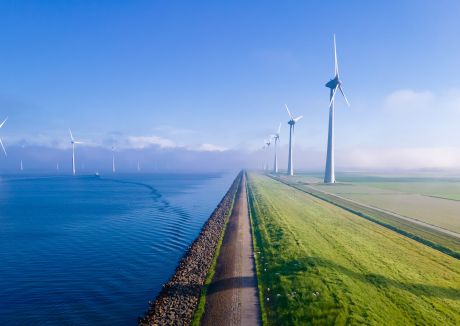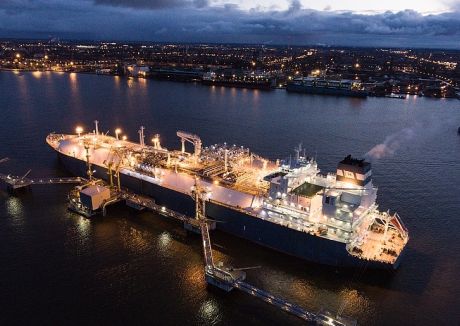Gas Strategies celebrated its 30th anniversary in style last week with a gala event in the shadow of St Paul’s Cathedral. Many decades of experience were represented and many an anecdote was shared with the industry luminaries in attendance.
As Gas Strategies continues to chart a course through gas history, it is clear that the times are a-changin’ – economic fundamentals previously taken for granted have made way for a different landscape, with the very makeup of the gas, LNG and gas-to-power industries in flux.
Attendees expressed a view that large-scale batteries will be the next major disruptor in the energy sector. Battery technology is improving dramatically and will be a key enabler of renewables: this is a matter of batteries’ ability to balance the intermittency of renewable energy and also a question of grid stability. A larger volume of renewables creates an issue of frequency stability and battery units can potentially mitigate this, selling “grid stabilisation” as a service.
As for peakload demand, our guests noted that the falling cost of solar panels is starting to make large-scale installations (representing hundreds of MWs of installed capacity) possible at prices competitive with thermal-fired plants. The generation profile of solar panels, especially with batteries, was also recognised as a surprisingly good fit for industrial players in the Middle East.
On the question of “grid parity” – the point at which renewable generation can compete with thermal power without subsidies – the considered view was that it might take another five years for renewables to be generally cost competitive. However, this was thought to be very much a country and technology-specific issue.
In the case of the UK, one commentator suggested that the grid needs at least one third gas to balance wind and solar generation, and that a talked-of world where solar and batteries are combined would create “the most expensive electricity system imaginable”.
LNG uncertainty
One of the biggest potential disruptors for the LNG industry was also seen as one of the biggest opportunities: the ability of the LNG business to become more comfortable with less certainty.
Looking to the future, our guests expected pain and opportunity to result in new commercial innovations and behaviours as players, new and old, seek to thrive in challenging times. The adjustments made by established players – utilities, IOCs and NOCs – will be complemented by the emergence of a hungry pack of traders and similarly entrepreneurially minded players taking advantage of increased liquidity in the LNG market, and the emergence of LNG hubs enabled by this greater liquidity.
The time horizon of market participants is moving to a shorter perspective, with a desire for shorter-term trades and commitments – this disruption will shape the form of the LNG business of the future.
Investors – including lenders – will have to square the circle of how an industry, for which long-term contracts are less desirable (and perhaps even impossible in their traditional form), sustains development. The emergence over the next half decade of a global, traded LNG spot price would be a critical step. Our guests posed the question: how far away are we from a project taking FID on the basis of such a price without a long-term contract in place?
Certainly the behaviours, practices and strategies formed in the crucible of these challenging times will significantly shape the future of LNG, with a march towards something more like a traded commodity and less like the rationalised, long-term floating pipeline industry of the history books.
Exciting times to come – and Gas Strategies looks forward to being at the forefront of this challenging industry for at least another 30 years.
Gas Strategies is a global specialist professional services organisation providing commercial energy advisory services across all continents, through consulting, training and information services.
If you would like more information about how Gas Strategies can help your business with Consulting services across the value chain or provide industry insight with regular news, features and analysis through Information Services or help with people development through Training services, please contact us directly.








